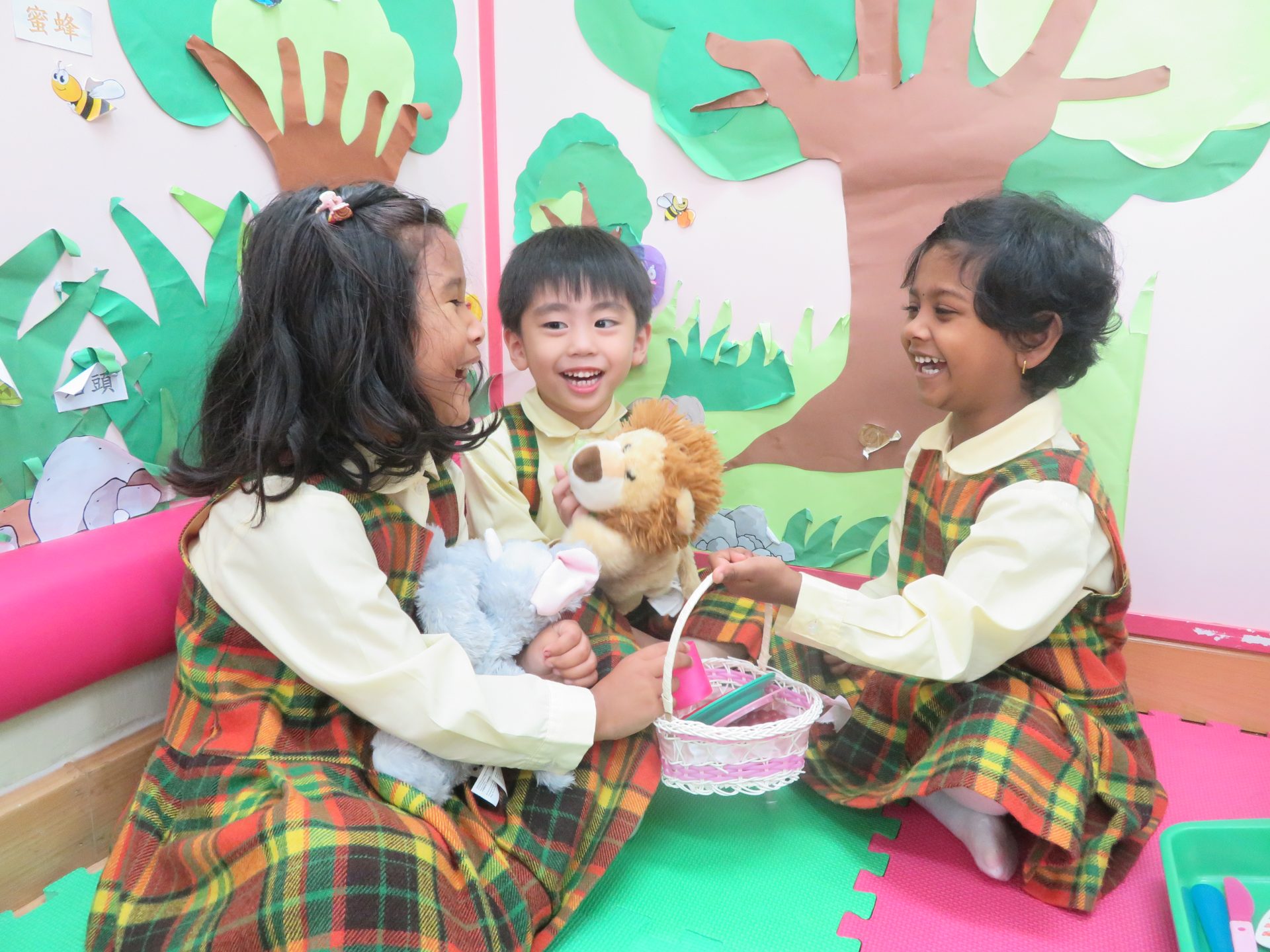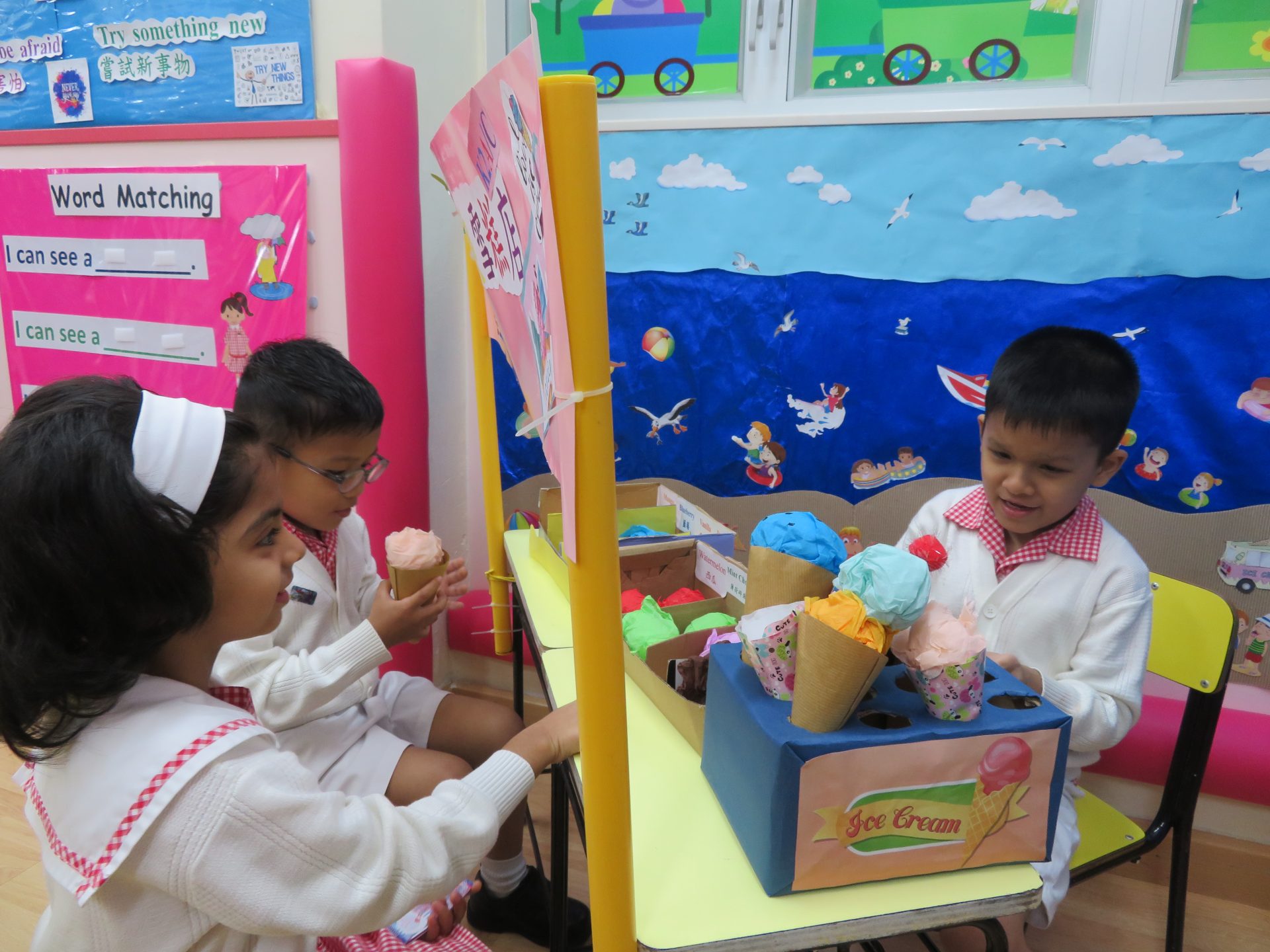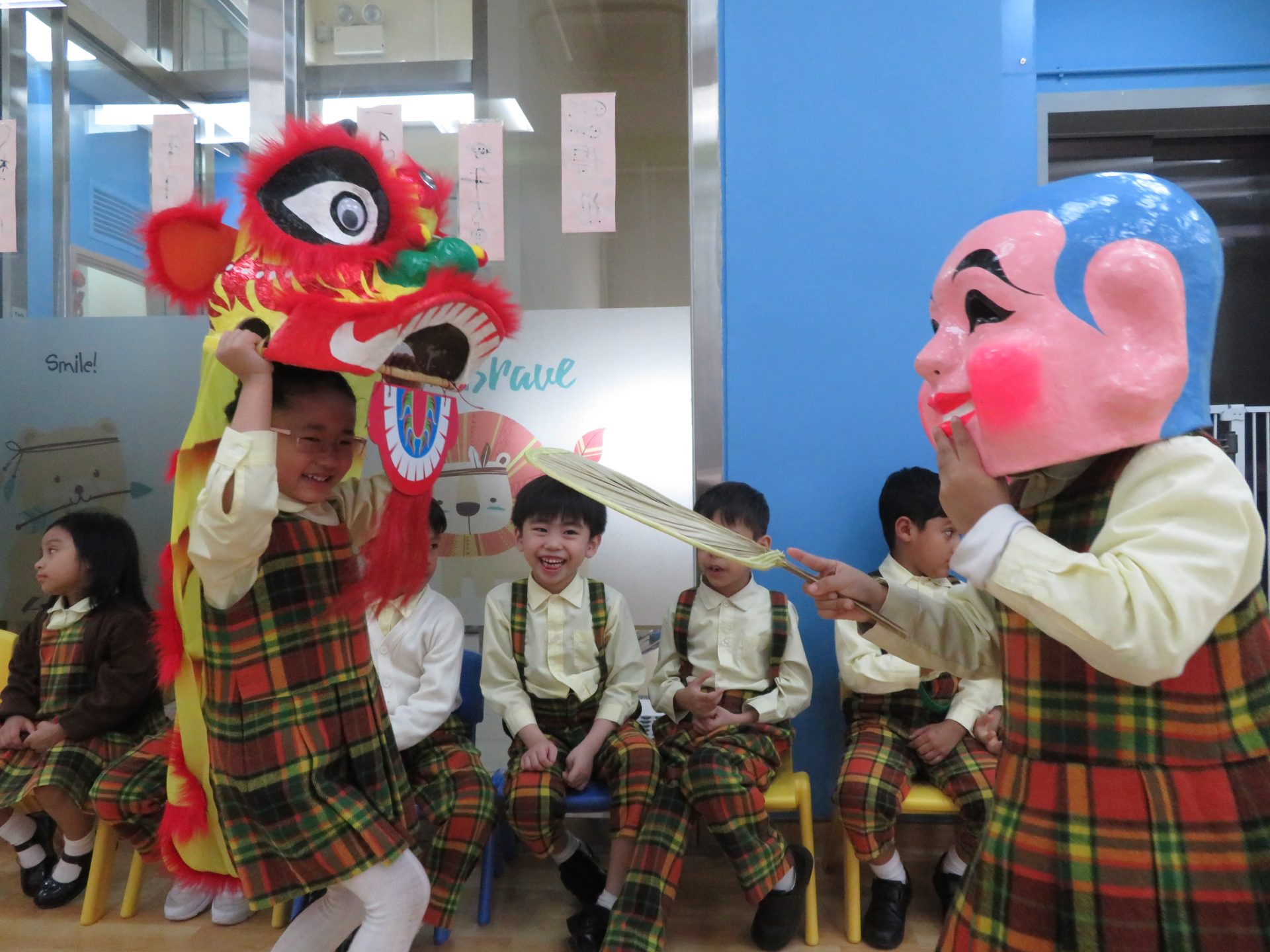Our school is an EMI school using English as the first language and Cantonese as the second. The dual teacher system is employed where each class is conducted by a native English-speaking expatriate together with a local Chinese teacher. We believe that practicing bilingual teaching in a diverse cultural background provides students with rich learning experiences, as well as greatly enhances their language proficiency both in English and Chinese.
To provide children with integrated and comprehensive learning experiences according to the five development goals of the “Kindergarten Education Curriculum Guide” (2017), a spiral curriculum is employed to consolidate the progress of all three level courses and compile the six learning areas of Language, Physical Fitness and Health, Early Childhood Mathematics, Self and Society, Nature and Living, Arts and Creativity.
Teachers adopt various pedagogies, such as thematic approach, whole language teaching and project-approach learning, combined with children’s daily life experience, to improve learning effectiveness; and through free games, encourage children to actively explore, to achieve the results of prolonging concentration and strengthening learning motivation.
In order to take care of children’s diversity and promote social integration, teachers make good use of community resources to create a multicultural environment, expand children’s learning space, broaden their horizons, and let them experience the cultures of different classes and ethnic groups outside the classroom.


Moral Education
The best way to teach good character is through practice and experience. Therefore, we combine school life and positive education as the basis for nurturing children’s values and good behaviors, so that children can know about themselves, establish concepts of right and wrong, and learn to express their emotions and feelings.
Teachers use daily themes and classroom activities, stories, role-playing, etc., to let children learn through practice, such as taking turns, serving as group leaders, assisting with simple class tasks, making work plans with friends of different ethnic groups, and cooperatively playing games, etc., all of which help learn to get along with people and get a sense of joy and success.
Preparation for Primary School
For K3 classes, we will provide primary school information to parents and arrange primary one adaptation courses for children to enhance their confidence in the transition to primary school.

